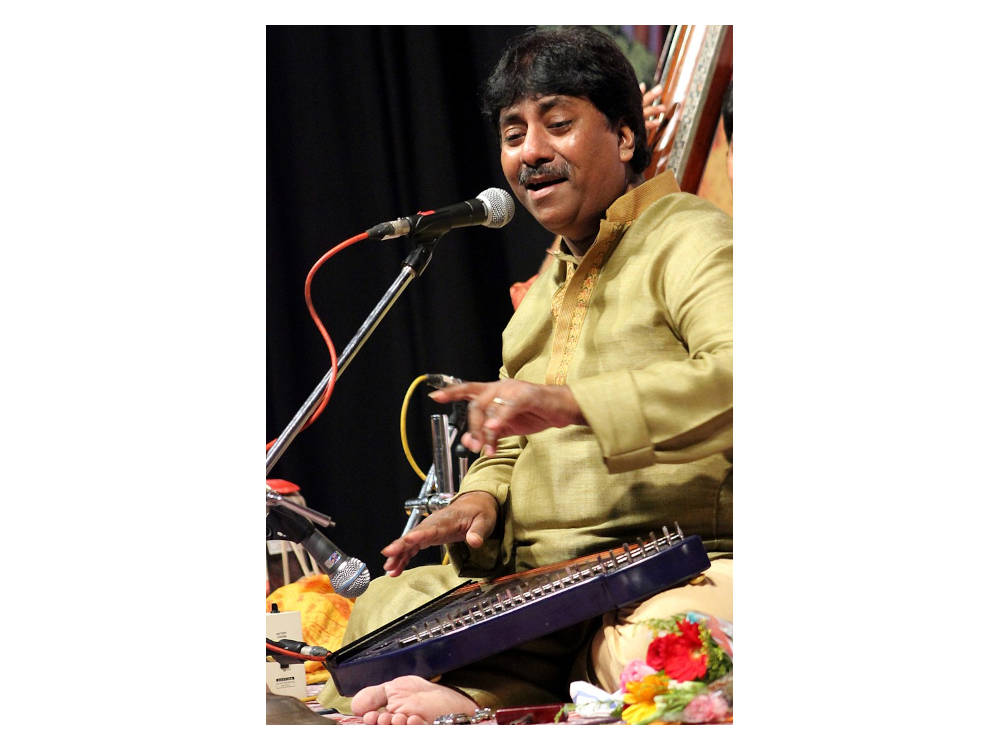[By Suyash.dwivedi - Own work, CC BY-SA 4.0, via Wikimedia]
Rashid Khan who has passed away at 55, an age when most artistes were considered naujawan only a century ago, was, by far, the greatest classical voice of my generation. In his book, The Lost World of Hindustani Music, my guru, musicologist Kumar Prasad Mukherji quotes Amir Khan (the classical singer) about the effect of Bade Ghulam Ali Khan’s voice. While we have to undertake sustained effort for quite a while at a concert, (Bade) Ghulam Ali just needed to utter the first sai, that was enough to mesmerise the audience. One can pretty much say the same thing about Rashid Khan whose voice was enough, shorn of its classical trappings, to mesmerise the audience.
Unlike the senior Ghulam Ali, who started his life with the sarangi, Rashid Khan was a child prodigy, initially groomed by his maternal grand-uncle, Nissar Hussain Khan, a “self-made” artist from the Rampur-Sahaswan tradition, who gave him quite a tough introduction to the art form. It helped that young Rashid was a scholar at ITC’s newly formed Sangeet Research Academy, where Nissar Hussain was one of the resident gurus, since it enabled him to listen to other teachers in residence, as well as the recordings of old masters, many of them sourced via a Ford Foundation project, led in part by my guru.
In short time his was the voice most demanded at marquee concerts, at the National Centre for the Performing Arts (NCPA) in Mumbai, the annual Dover Lane event in Kolkata, and of course, abroad. However, a falling out with his ustad, Nissar Hussain, and his own individual approach to music meant that while his voice reproduction and taankari continued to be based on his ustad, Rashid adopted more and more of the Kirana style of Amir Khan and Bhimsen Joshi. Declining several offers to sing in Hindi motion pictures, despite his breakout Aaoge Jab Tum Saajna in Jab We Met, Rashid stuck to his roots and remained a classicist to the end, occasionally delving into collaborations with practitioners of “light music” as varied as Hariharan and Louis Banks.
Here is Rashid Khan’s first recording at the young age of 18 where he sings traditional compositions in the early morning raga Lalit.
Rashid Khan talks to my guru about his initial training and musical approach, displaying amazing control over bahlawa, a faster portion of the alaap.
Rashid sings a tarana, a wordless composition set to a medium tempo in the night raga Jhinjhoti
The famous Sunny Towers concert, where Rashid sings at music connoisseur Jayanta Chatterjee’s residence where he sings two of his favourite ragas, Yaman and Desh, among many others.
Rashid’s concert with Bhimsen Joshi, the second major influence on his singing career, introduced by Vilayat Khan where he sings Mian ki Todi, Shankara, Darbari and Bhairavi
His live performance version of Aaoge Jab Tum Saajna, where he takes it to a different level altogether.
To end things on a high, his rendition of Bilashkhani Todi, an emotional early morning raga ideally suited to his dulcet baritone voice

